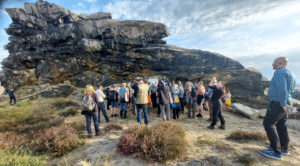INQUA 2503 sy IRN: The Paraguay Past Ecology Network – Red de la Ecología del Pasado de Paraguay (PyPEN-REP)
The PyPEN-REP project will unite a diverse group of experts and stakeholders—including palaeoecologists, archaeologists, Paraguayan botanists and ecologists, environmental NGOs, Indigenous community representatives, government agencies, and binational organisations. Together, they will explore the opportunities and practical considerations for conducting palaeoecological research in Paraguay.
Abstract
Paraguay lies at a key biogeographic crossroads in South America, yet its Quaternary ecological history remains virtually unknown. It is the only country on the continent without a single palaeoecological research site.
Emerging evidence suggests that Paraguay played a vital role as a corridor linking the Amazon and Atlantic forests during past climate cycles. Later, Tupi-Guarani migrations and colonial Jesuit missions likely transformed its landscapes but the impacts that remain unstudied.
Today, Paraguay’s ecosystems, including two global biodiversity hotspots, face severe threats from deforestation. Understanding their deep history is critical to shaping effective conservation and climate strategies for the future.
Objectives:
- Introduce Paraguay’s socio-ecological systems to the international Quaternary research community;
- Showcase potentially applicable palaeoecological principles and techniques to Paraguayan participants;
- Assess existing knowledge about the Quaternary histories of the socio-ecological systems;
- Provide a primer on conducting ecological research in Paraguay with in-country partners.
Project leaders:
- Oliver Wilson, Department of Environment and Geography, University of York, United Kingdom
- Daniel Loponte, Consejo Nacional de Investigaciones Científicas y Técnicas, Buenos Aires
- Olga Aquino, Institut des Sciences de l’Evolution Montpellier, Université de Montpellier, France
- Mirian Carbonera, Universidade Comunitária da Região de Chapecó, Santa Catarina, Brasil







